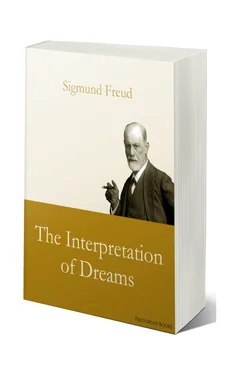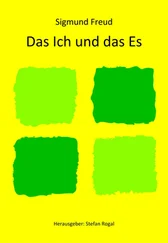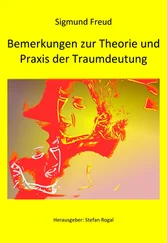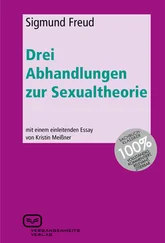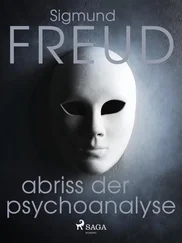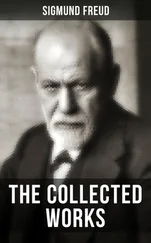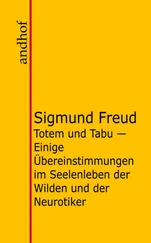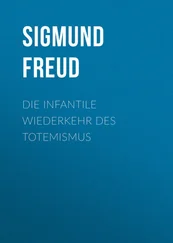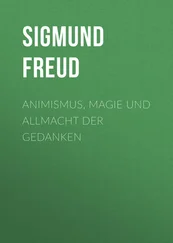In the works of those physicians who make use of the psychoanalytic method of treatment (Jung, Abraham, Riklin, Muthmann, Stekel, Rank, and others), an abundance of dreams have been reported and interpreted in accordance with my instructions. In so far as these works go beyond the confirmation of my assertions I have noted their results in the context of my discussion. A supplement to the literary index at the end of this book brings together the most important of these new publications. The voluminous book on the dream by Sante de Sanctis, of which a German translation appeared soon after its publication, has, so to speak, crossed with mine, so that I could take as little notice of him as the Italian author could of me. Unfortunately, I am further obliged to declare that this laborious work is exceedingly poor in ideas, so poor that one could never divine from it the existence of the problems treated by me.
I have finally to mention two publications which show a near relation to my treatment of the dream problems. A younger philosopher, H. Swoboda, who has undertaken to extend W. Fliesse's discovery of biological periodicity (in groups of twenty-three and twenty-eight days) to the psychic field, has produced an imaginative work, in which, among other things, he has used this key to solve the riddle of the dream. The interpretation of dreams would herein have fared badly; the material contained in dreams would be explained through the coincidence of all those memories which during the night complete one of the biological periods for the first or the n-th time. A personal statement from the author led me to assume that he himself no longer wished to advocate this theory earnestly. But it seems I was mistaken in this conclusion; I shall report in another place some observations in reference to Swoboda's assertion, concerning the conclusions of which I am, however, not convinced. It gave me far greater pleasure to find accidentally, in an unexpected place, a conception of the dream in essentials fully agreeing with my own. The circumstances of time preclude the possibility that this conception was influenced by a reading of my book; I must therefore greet this as the only demonstrable concurrence in the literature with the essence of my dream theory. The book which contains the passage concerning the dream which I have in mind was published as a second edition in 1900 by Lynkus under the title Phantasien eines Realisten.
THE ANALYSIS OF A SAMPLE DREAM
The title which I have given my treatise indicates the tradition which I wish to make the starting-point in my discussion of dreams. I have made it my task to show that dreams are capable of interpretation, and contributions to the solution of the dream problems that have just been treated can only be yielded as possible by-products of the settlement of my own particular problem. With the hypothesis that dreams are interpretable, I at once come into contradiction with the prevailing dream science, in fact with all dream theories except that of Scherner, for to "interpret a dream" means to declare its meaning, to replace it by something which takes its place in the concatenation of our psychic activities as a link of full importance and value. But, as we have learnt, the scientific theories of the dream leave no room for a problem of dream interpretation, for, in the first place, according to these, the dream is no psychic action, but a somatic process which makes itself known to the psychic apparatus by means of signs. The opinion of the masses has always been quite different. It asserts its privilege of proceeding illogically, and although it admits the dream to be incomprehensible and absurd, it cannot summon the resolution to deny the dream all significance. Led by a dim intuition, it seems rather to assume that the dream has a meaning, albeit a hidden one; that it is intended as a substitute for some other thought process, and that it is only a question of revealing this substitute correctly in order to reach the hidden signification of the dream.
The laity has, therefore, always endeavoured to "interpret" the dream, and in doing so has tried two essentially different methods. The first of these procedures regards the dream content as a whole and seeks to replace it by another content which is intelligible and in certain respects analogous. This is symbolic dream interpretation; it naturally goes to pieces at the outset in the case of those dreams which appear not only unintelligible but confused. The construction which the biblical Joseph places upon the dream of Pharaoh furnishes an example of its procedure. The seven fat kine, after which came seven lean ones which devour the former, furnish a symbolic substitute for a prediction of seven years of famine in the land of Egypt, which will consume all the excess which seven fruitful years have created. Most of the artificial dreams contrived by poets are intended for such symbolic interpretation, for they reproduce the thought conceived by the poet in a disguise found to be in accordance with the characteristics of our dreaming, as we know these from experience. The idea that the dream concerns itself chiefly with future events whose course it surmises in advance—a relic of the prophetic significance with which dreams were once credited—now becomes the motive for transplanting the meaning of the dream, found by means of symbolic interpretation, into the future by means of an "it shall."
A demonstration of the way in which such symbolic interpretation is arrived at cannot, of course, be given. Success remains a matter of ingenious conjecture, of direct intuition, and for this reason dream interpretation has naturally been elevated to an art, which seems to depend upon extraordinary gifts. The other of the two popular methods of dream interpretation entirely abandons such claims. It might be designated as the "cipher method," since it treats the dream as a kind of secret code, in which every sign is translated into another sign of known meaning, according to an established key. For example, I have dreamt of a letter, and also of a funeral or the like; I consult a "dream book," and find that "letter" is to be translated by "vexation," and "funeral" by "marriage, engagement." It now remains to establish a connection, which I again am to assume pertains to the future, by means of the rigmarole which I have deciphered. An interesting variation of this cipher procedure, a variation by which its character of purely mechanical transference is to a certain extent corrected, is presented in the work on dream interpretation by Artemidoros of Daldis. Here not only the dream content, but also the personality and station in life of the dreamer, are taken into consideration, so that the same dream content has a significance for the rich man, the married man, or the orator, which is different from that for the poor man, the unmarried man, or, say, the merchant. The essential point, then, in this procedure is that the work of interpretation is not directed to the entirety of the dream, but to each portion of the dream content by itself, as though the dream were a conglomeration, in which each fragment demands a particular disposal. Incoherent and confused dreams are certainly the ones responsible for the invention of the cipher method. The worthlessness of both these popular interpretation procedures for the scientific treatment of the subject cannot be questioned for a moment. The symbolic method is limited in its application and is capable of no general demonstration. In the cipher method everything depends upon whether the key, the dream book, is reliable, and for that all guarantees are lacking. One might be tempted to grant the contention of the philosophers and psychiatrists and to dismiss the problem of dream interpretation as a fanciful one.
I have come, however, to think differently. I have been forced to admit that here once more we have one of those not infrequent cases where an ancient and stubbornly retained popular belief seems to have come nearer to the truth of the matter than the judgment of the science which prevails to-day. I must insist that the dream actually has significance, and that a scientific procedure in dream interpretation is possible. I have come upon the knowledge of this procedure in the following manner:—
Читать дальше
